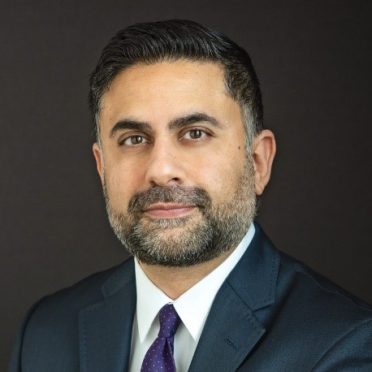<< Back
Dr. Sukhera Speaks at 15th Annual Muslim Mental Health Conference

March 27, 2023
Marking its 15th annual conference earlier this month was a milestone for the Muslim Mental Health Consortium, and a Hartford HealthCare leader lent his voice, vision and perspective to the celebration.

Javeed Sukhera, MD, PhD, chair of psychiatry at the Institute of Living, part of the Behavioral Health Network, attended the two-day conference at the University of Michigan and presented “Healing from Islamophobia: Addressing the Mental Health Consequences of Anti-Muslim Discrimination.” He was also included in an invitation-only retreat focusing on the vision for Muslim mental health in the United States, and offered thoughts at the onset of Ramadan, the holiest month on the Muslim calendar, which through April 20.
“We need to support, amplify and elevate diverse voices in the field from the various Muslim communities,” Dr. Sukhera says of the need for the conference and organized planning for change and improvement in the future. “We need amplification of the work being done.”
The conference, he explains, highlights the positive, while still recognizing the prevalence of anti-Muslim sentiment in this country. The theme of the gathering, for example, was “Honoring Legacies, Reflecting on Progress and Envisioning New Horizons.” But, several sessions, including his, acknowledged challenges Muslims face daily.
“There has been a lot of public demonization of Muslims and rising levels of hate,” Dr. Sukhera says. “It’s important to have professionals who can understand and address these issues.”
His presentation, which drew on his personal experience grieving the murder of his friends in an anti-Muslim hate crime, focused on the need for mental health providers to adapt their current approaches in care for Muslim patients while acknowledging the discrimination and prejudice they face.
“Work is underway at the IOL to adapt care to allow people to heal. We emphasize that there’s no one way, that everyone has a different journey,” Dr. Sukhera explains.
Many Muslims of diverse backgrounds who seek mental health care do not always find culturally affirming care in the current system.
“We need to be aware of our positionality with patients, not answer for them and project our own ideas,” he says. “They need to feel culturally affirmed.”
The conference itself reflected the “depth, breadth and richness” in the field these days, with sessions on addiction, opiates, college age stigma and other timely topics, Dr. Sukhera says.